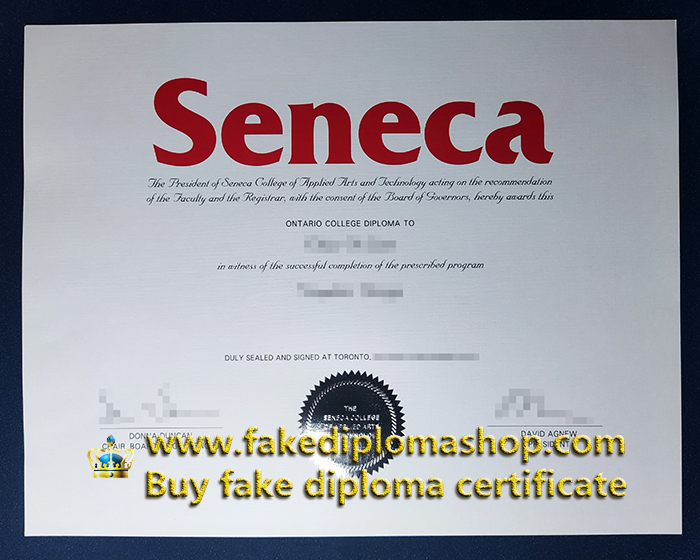
Seneca College fake diploma
Why do you choose a Seneca College fake diploma to get a job? Who can make a nice Seneca College diploma for me? Can I buy a fake Seneca College diploma from the fakediplomashop? How much cost a Seneca College Bachelor degree? Seneca College of Applied Arts and Technology, which operates as the Seneca Institute of Technology. It is a multi-campus public college located in the Greater Toronto area and Peterborough, Ontario, Canada. It offers full-time and part-time programs at the Bachelor’s, Diploma, certificate and graduate levels.
Seneca was established in 1967 as part of a provincial initiative to establish an Ontario-wide network of colleges of Applied Arts and technology to provide career-oriented diploma and certificate programs and continuing education programs to Ontario communities. As technology continues to change the nature of work and the provincial economy, the province is responding to a growing demand for sophisticated applied learning.
General education is considered an important part of higher education, and breadth courses continue to be a part of every curriculum. In 2001, these colleges were granted the ability to offer bachelor’s degrees. Seneca is one of five colleges that can offer up to 15 percent of degree program activities. Seneca offers more than 145 full-time programs and 135 part-time programs, including 14 bachelor’s degrees and 30 graduate certificates.
What are the advantages of buying a Seneca College fake diploma?
Many programs offer experiential learning opportunities, such as paid internships, internships, internships, and community service options, and some include mandatory paid internships before graduation. Seneca also offers career search help for graduating students. Seneca College’s curriculum is developed and kept up to date with the assistance of an advisory committee made up of industry members.
The Seneca College has over 70 transfer agreements with local and international higher education institutions, including universities in Australia, the United Kingdom, South Africa and the United States. These agreements allow students to apply for a college education in order to earn credit for a college degree.

